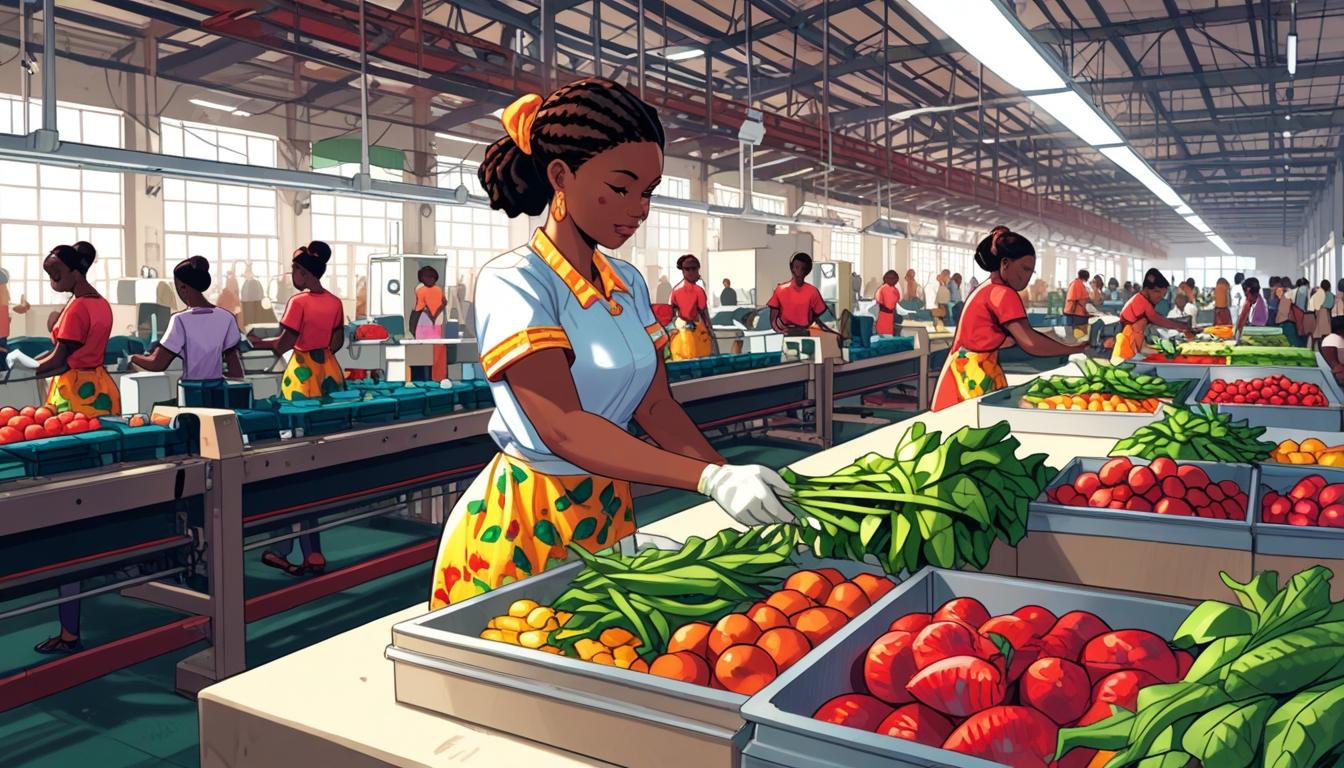The International Finance Corporation’s $600 million investment aims to strengthen Ghana’s garment and agro-processing sectors, potentially creating 200,000 jobs and boosting the economy.
Ghana’s economic landscape is poised for significant transformation following the International Finance Corporation’s (IFC) announcement of a $600 million investment aimed at bolstering the country’s garment and agro-processing industries. This financial commitment, revealed as part of the World Bank Group’s broader strategy to catalyze job creation and reduce reliance on government-led initiatives, arrives as Ghana continues to confront longstanding challenges related to financing and infrastructure that have impeded its industrial progress.
The IFC’s investment focuses on two vital sectors of Ghana’s economy: textiles and agro-processing. Historically, Ghana’s garment sector was a leading force in the region but has struggled in recent years due to competition from cheaper imports and outdated manufacturing techniques. Experts suggest that the newly available capital could rejuvenate local factories, enhance supply chains, and position Ghana as a formidable exporter once again. Companies such as Dignity DTRT and Sleek Garments, which have begun to carve out a niche in international markets, are expected to benefit significantly from increased capacity and advancements in technology.
In addition, the agro-processing sector, which is highly dependent on raw material exports, is set to gain from the IFC’s financial support. Despite agriculture’s contribution of approximately 20% to Ghana’s GDP, many farmers currently lose revenue by selling raw materials instead of processed goods. The IFC intends to finance the development of modern facilities for processing agricultural products, including cocoa, shea butter, and various fruits. This initiative is anticipated to diminish post-harvest losses, create job opportunities, and enhance Ghana’s standing in global export markets.
The investment also allows the Ghanaian government to allocate resources towards other critical areas such as infrastructure, education, and health care. According to financial experts, improvements in transportation networks and ports could significantly streamline logistics for businesses, while enhanced technical training programs may address burgeoning skills shortages within the evolving private sector. Additionally, an expansion in industrial activity is likely to increase tax revenues, which could be redirected to fund social services and potentially alleviate the country’s poverty rates, currently hovering around 24%.
This strategic financial intervention aligns with Ghana’s “Ghana Beyond Aid” agenda, which advocates for self-sufficiency through public-private partnerships (PPPs). An economist based in Accra remarked, “This isn’t just about money—it’s about signaling confidence in Ghana’s economy.” The economist further noted that the IFC’s involvement could encourage further foreign investment, particularly under the framework of the African Continental Free Trade Area (AfCFTA).
The human impact of this investment could be profound, with projections of up to 200,000 direct and indirect jobs created over the next five years. This prospect is particularly significant in a country where youth unemployment exceeds 14%. The establishment of agro-processing plants in rural areas could lead to increased incomes, potentially curbing urban migration and alleviating pressure on congested urban centers.
However, some experts encourage a cautious approach. Historical patterns of industrial policies in Ghana have been hampered by bureaucratic inefficiencies and uneven implementation. A development researcher in Kumasi emphasized the need for the IFC to prioritize partnerships with local businesses to prevent a dependency on foreign expertise and to ensure that transparency in fund allocation remains a focal point of the initiative.
As Ghana embarks on this substantial investment journey, the country’s economic trajectory will undergo a critical evaluation. If properly managed, the IFC’s funding may represent a pivotal shift, transforming Ghana from primarily a raw material exporter to a center for value-added production. For farmers, factory workers, and entrepreneurs alike, the implications extend beyond mere financial figures to create tangible avenues for escaping poverty. With the global market increasingly turning towards Africa’s trade possibilities, particularly under the AfCFTA framework, Ghana’s ability to harness this investment could significantly redefine its role in the continent’s economic evolution.
Source: Noah Wire Services




